This Week in Anime
Why You Should Watch Mai Mai Miracle Right Now
by Jean-Karlo Lemus & Monique Thomas,
Before his acclaimed film In This Corner of the World, director Sunao Katabuchi helmed Mai Mai Miracle. Set in a rural town in the 1950s, the film takes an honest look at the emotionally-charged childhoods of a group of children and the darker world of adults just beneath the surface.
This movie streamed for a limited time on Crunchyroll
Disclaimer: The views and opinions expressed by the participants in this chatlog are not the views of Anime News Network.
Spoiler Warning for discussion of the series ahead.
 @Lossthief
@Lossthief
|
 @mouse_inhouse
@mouse_inhouse
|
 @NickyEnchilada
@NickyEnchilada
|
 @vestenet
@vestenet
|
Hey there Jean-Karlo, can you guess what season it is? The time where black cats frequently cross your path. The time that the cold winds howls through the night, and spirits reign while children go from door to door asking to Be Treated or Be Tricked?
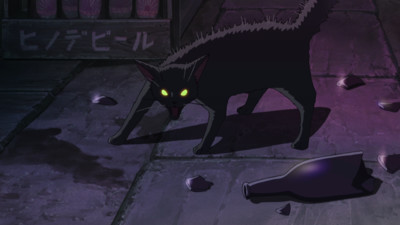
You mean that thing running around in the river out back is a kid? They come in transparent now? Cripes.
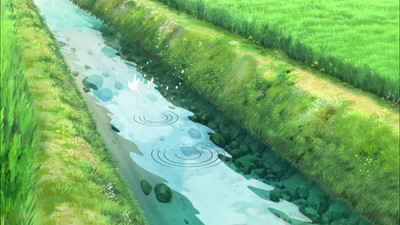
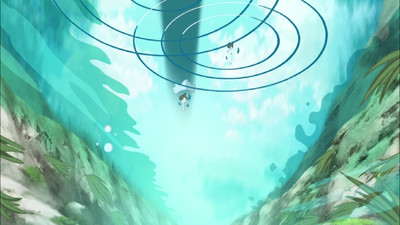
Better hide the booze. And the candy. And the booze-candy.
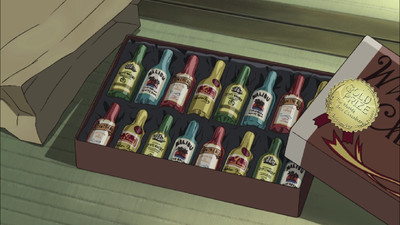
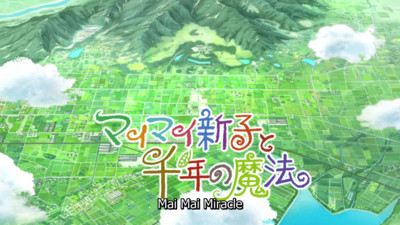
A big reason for doing this now is that Crunchyroll put this up as part of their movie club, but only for this month, and it's a film I've been trying to get a hold of for a good couple years. I guess the real scary story is the limited availability of anime streaming licenses! Oooooo
Oh and somewhere between all that he directed Black Lagoon, life is weird.
So the inevitable comparison of being a charming countryside exploration of early childhood to a Ghibli or a Miyazaki film isn't unwarranted. Personally, I find Katabuchi's work embodies some of my favorite things about the other director at Ghibli, Isao Takahata, who definitely had a similar keen eye for the lives of everyday people but also their struggles and joys. For one of our main characters, the nine-year-old Shinko, that struggle is a cowlick that sticks up from her head. Her Mai Mai, as she calls it.
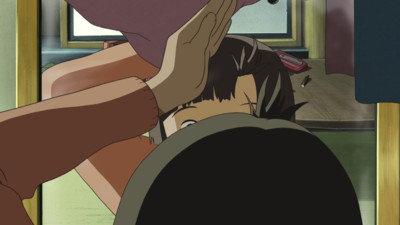
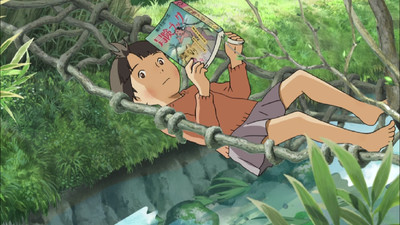
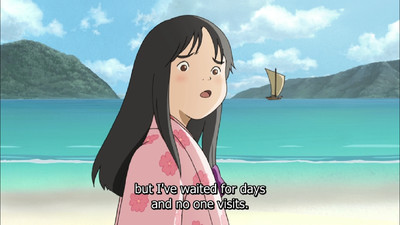
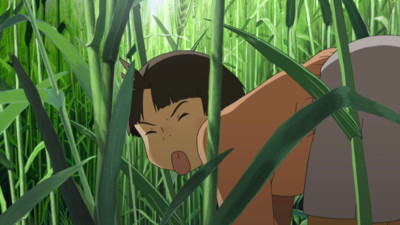
The film is largely split between her fantasies and her real life where she befriends another little girl, Kiiko, who just moved to town from the city. They quickly have fun imagining the 1,000-year history of the town together.
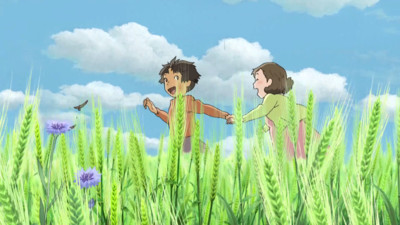
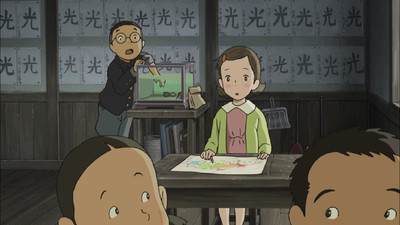
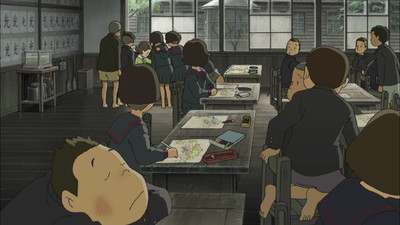
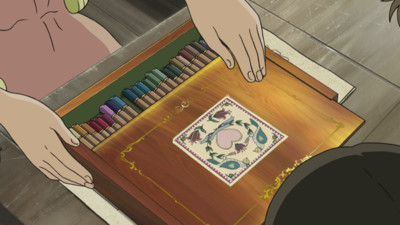
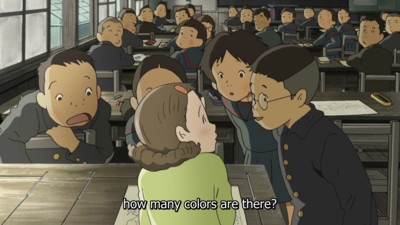
For those of you who might not know much about the cost of art supplies, getting good pigmentation often involves harvesting raw and expensive materials. Even today, in the age of cost-effective brands like Crayola, a quality set is still quite pricey. A set like this today would likely cost over 80 bucks USD! Definitely not something you'd want your kid taking to an elementary school classroom. Other kids would immediately start feeling insecure about their own wealth-gap. Which is exactly what happens in the film, landing another one of Kiiko's poorer classmate in trouble.
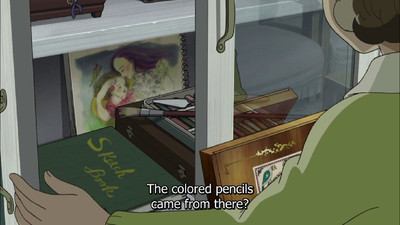
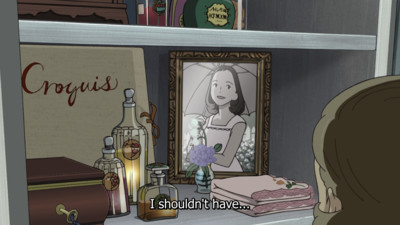
She also seemed to be quite the talented artist! Surely, that's hard to live up to.
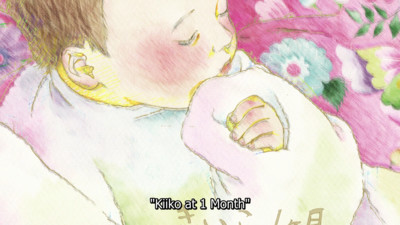
It's also fun seeing Shinko enamored with Kiiko's new house as a regular country bumpkin. She gets quickly taken in by the refrigerator, her room, and even the stairs!
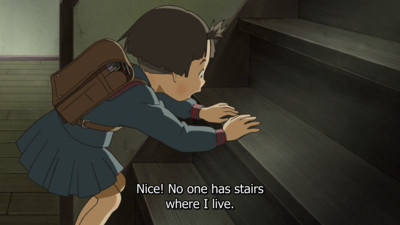
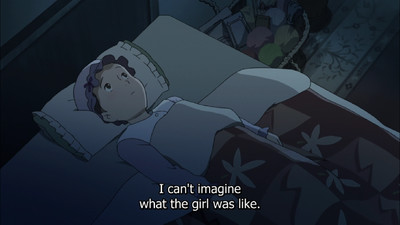
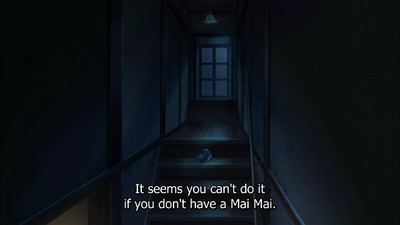
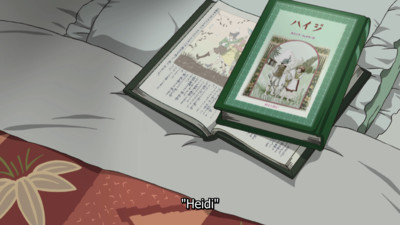
Kiiko also comes off as immediately withdrawn, scared and incredibly isolated. Her father is a doctor who is never home, her mother is gone, and she has no friends her age. She's even afraid of the dog who lives next door. Shinko on the other hand is very outgoing, rash, and deeply inquisitive. It's her good nature that helps break Kiiko's shell immediately and opens up the world for her.
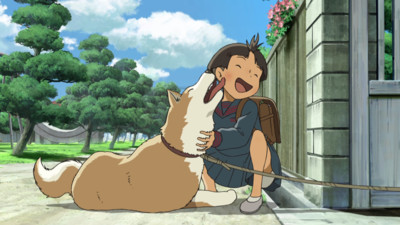
The dog's name is Bear BTW.
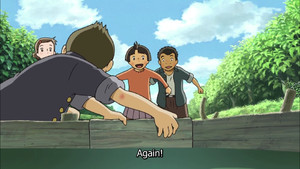
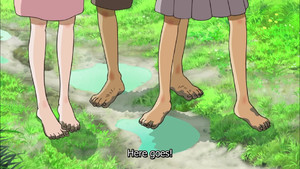
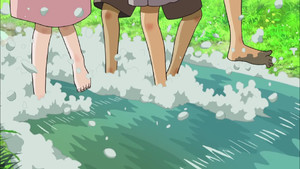
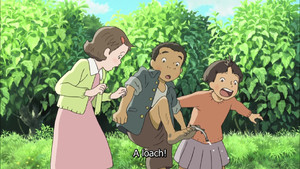
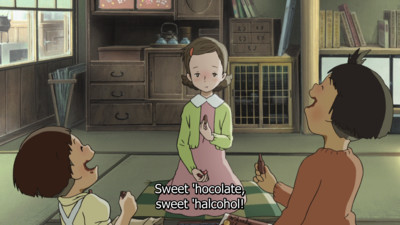
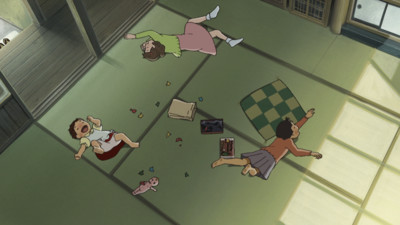
While a little distressing, it totally seems like a totally relatable kid thing that they can all laugh about much later! hahahaha.
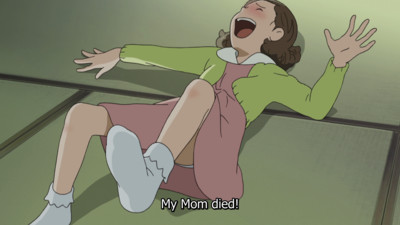
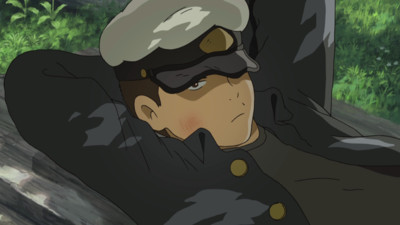
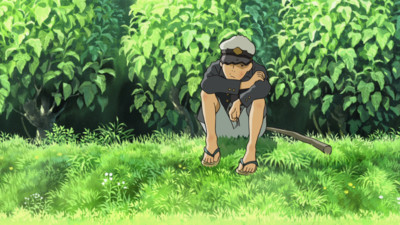
For the most part, however, their entire relationship is summed up by this scene where Tatsuyoshi takes his father's bokken without his permission. Again, we'll have to put a pin into the hows and whys—but let's just say personal experiences made the vibes in this scene between Tatsuyoshi and his father feel extremely familiar in a foreboding way.
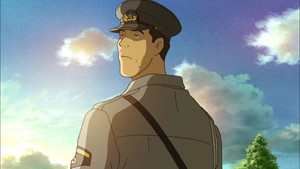
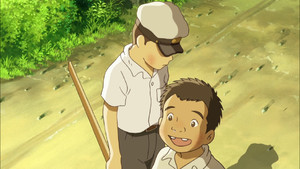
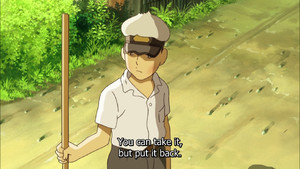
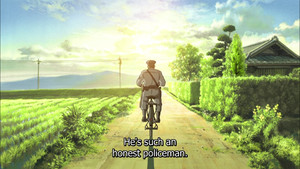
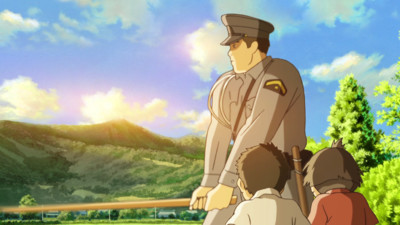
As for feminine figures, the kids zone-in on their beautiful young teacher Miss Hizuru who they all decide to name their goldfish after. She's even smart enough to inform the girls of the name of the young princess who once lived in Suo 1,000 years ago.
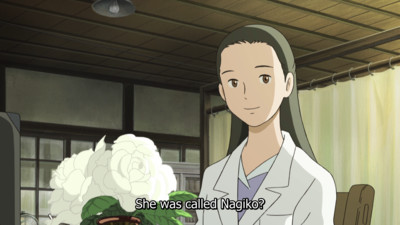
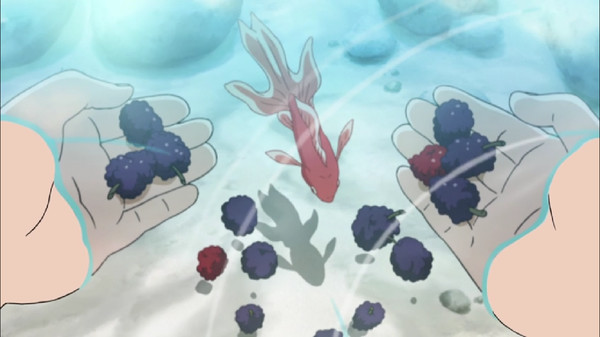
Once the kids find out that Hizuru is possibly getting married, they make a very cute pool for their fish. It's a legitimately cute bit.
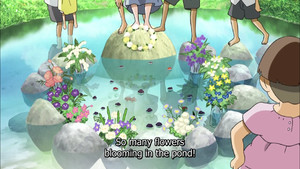
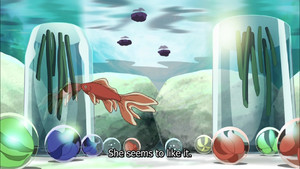
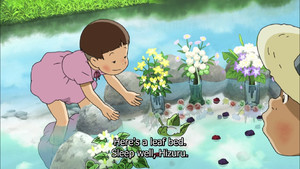
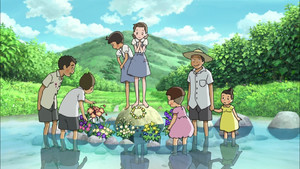
Alas, this is the turning point for the movie. The other kids have to lose their innocence somehow...
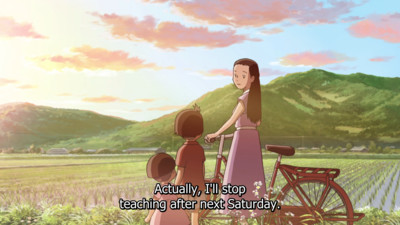
And it really feels like they're more enamored with the idea of their teacher/the happiness of marriage, rather than the reality.
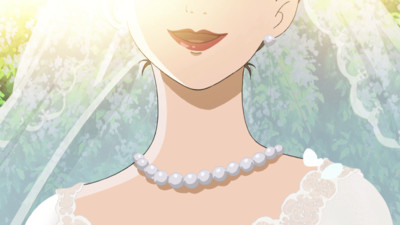
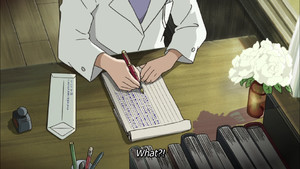
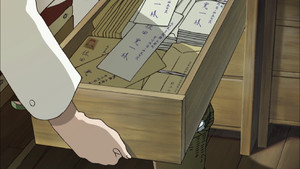
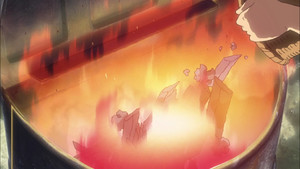
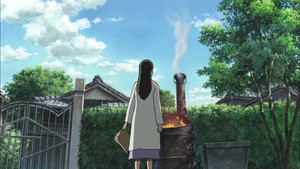
And to top it off their fragile little goldfish died after Kiiko placed a perfume bottle in the little pond they had created, as if breaking the spell.
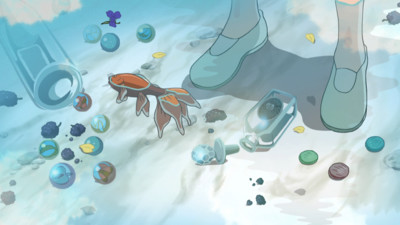
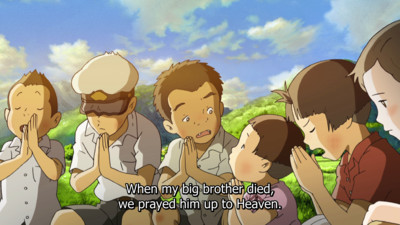
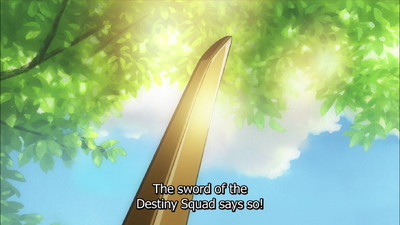
The next thing we find out, Tatsuyoshi's father is dead. The exact circumstances are shady, but he took his own life and was possibly involved with yakuza. The children, all of whom had looked up to Tatsuyoshi's father, are crushed.
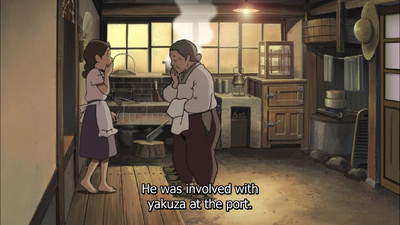
Shinko overhears this and is immediately crushed by how all of the adults around her believe that Tatsuyoshi's dad was troubled enough to do such a bad thing. It's a faith-shattering revelation.
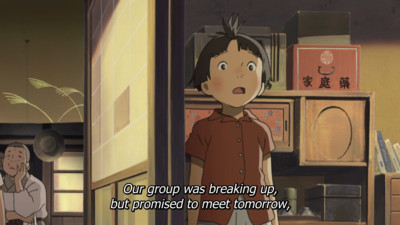
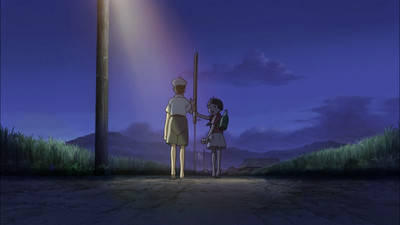
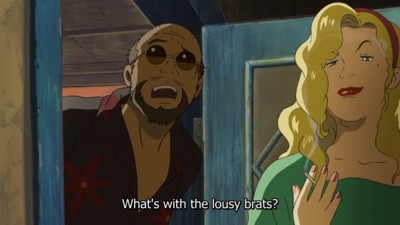
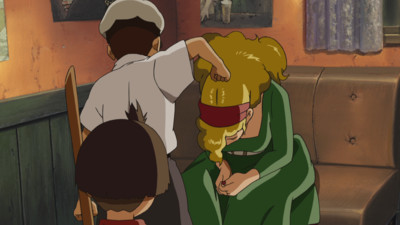
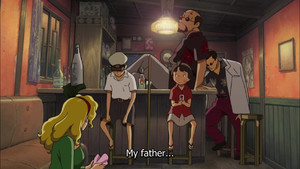
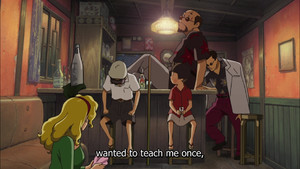
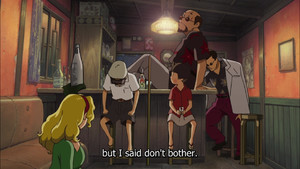
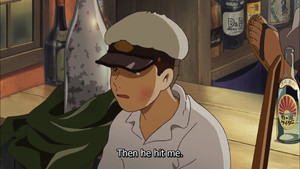
I don't know what else to say besides what I already said about Kiiko: some kids don't have the benefit of really enjoying their childhood before it's ended for them.
I suppose that's why this movie actually works for me while a lot of Miyazaki's don't. There's whimsy and beauty, but it doesn't speak down to me. It hurts to go through Tatsuyoshi's bumps in the road, but it doesn't ignore that there's a lot of ugly stuff in the world along with the pretty. As happy and beautiful as it is when the kids get to be together, the world of adults can and does affect them, just like Nicky said earlier. And you can't always solve it with it with a convenient peptalk that you can turn into a mood post on Instagram.
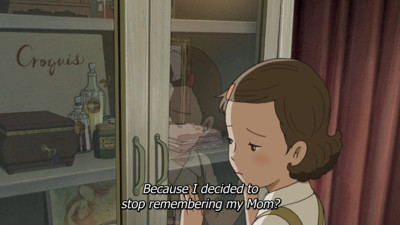
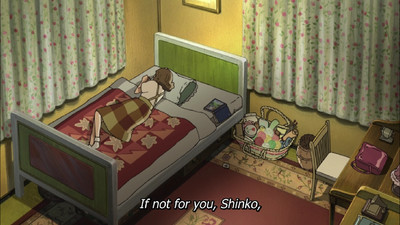
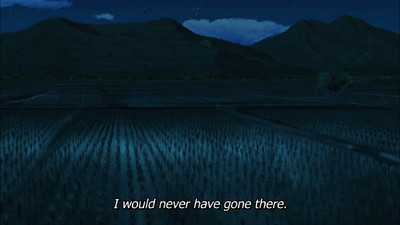
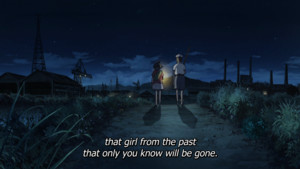
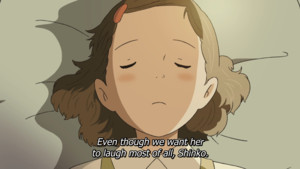
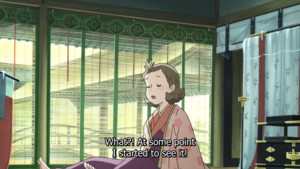
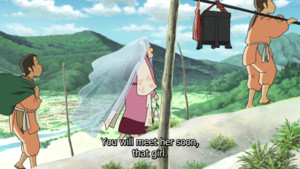
In a way, she's able to rediscover her childlike self despite everything that's happened to her. And it's that point in the movie that you know Kiiko and Shinko will be able to become friends again.
The princess largely deals with how lonely she is: she came to the town but whoever was meant to serve as her playmate possibly died before she arrived. As the princess amuses herself in her loneliness, a servant girl works in her midst.
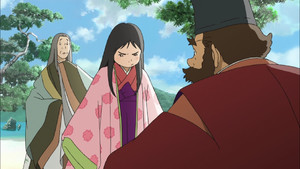
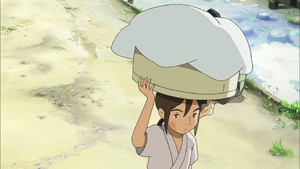
Kiiko's own Mai Mai Miracle puts her into the shoes of the princess as she visits this servant girl's little hovel. She and her family have been sick because of some bad food, so the princess amuses the servant girl's younger siblings with the dolls she made on her own. It's enough to make a bad day better for them, which is a start.
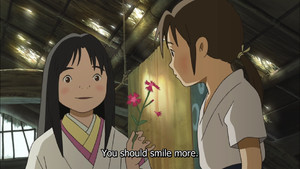
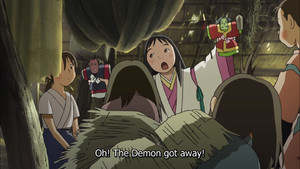
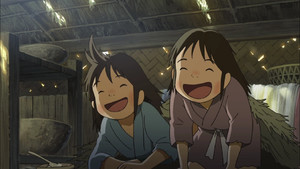
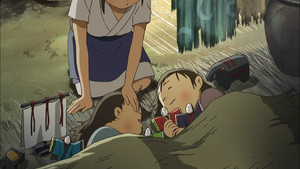
Also, that bit with the flower up there is important—there's a very cute moment of magic as that one stray petal lands in Shinko's cup of soda while she and Tatsuyoshi are at the bar.
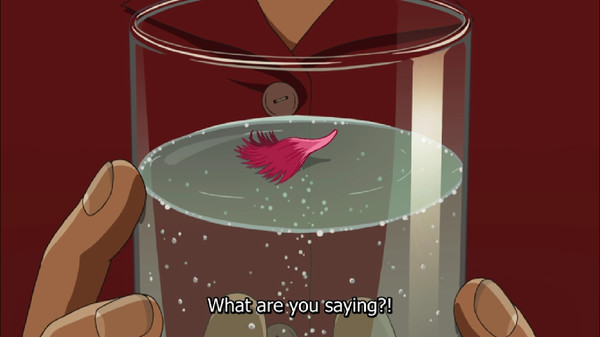
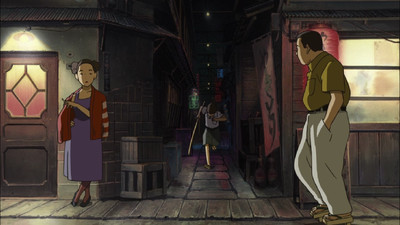
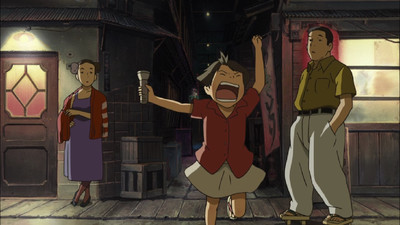
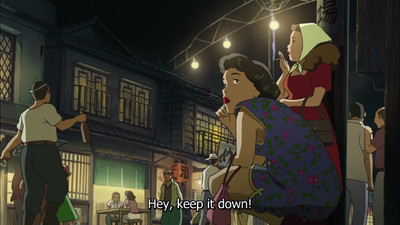
I'll note that this is where the time period is also very relevant as likely anyone who would've grown up in this era of the 50's is now, themselves a parent or grandparent. After their sustained emotional wailing, Tatsuyoshi swears to become the father his dad never was.
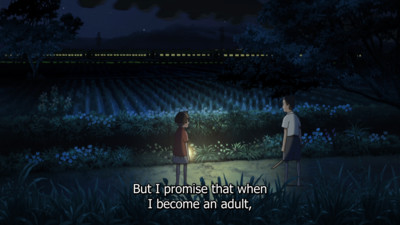
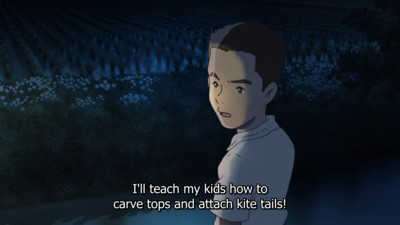
He bequeaths Shinko his father's sword and she tells him that the most important thing is to keep having fun in life.
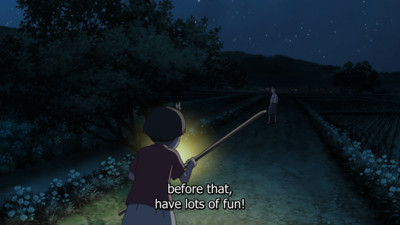
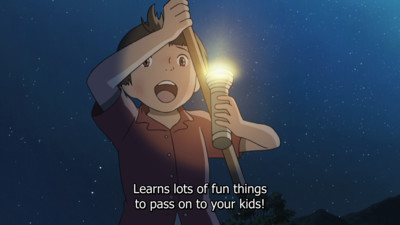
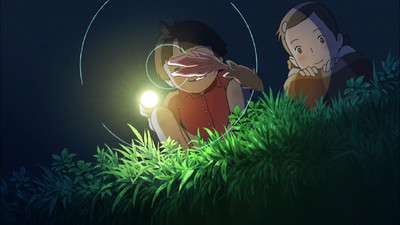
Best of all, Kiiko found a picture of her mother in one of her books, giving her a glimpse into who she was back when she was Kiiko's age. It's a very tender moment.
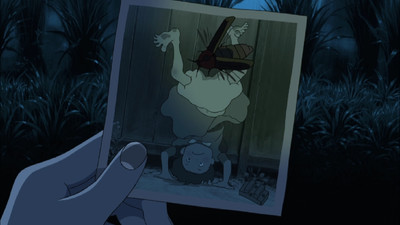
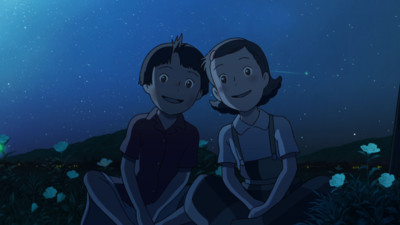
Eventually, Shinko's dad comes to pick them up, and we see him for the first time in the film. This moment really surprised me because you'd expect him to be not-so-great having been absent with work the whole time. Turns out he's actually a researcher at the university, and you can really tell where Shinko gets it from. Seems like a pretty good dad. A very charitable view of an adult after going through a lot of less charitable ones.
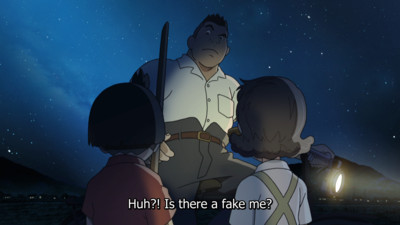
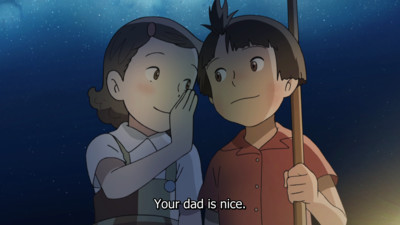
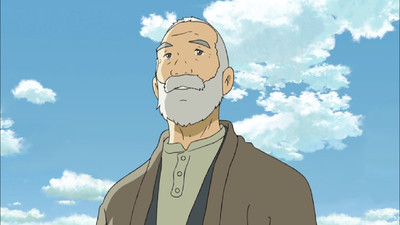
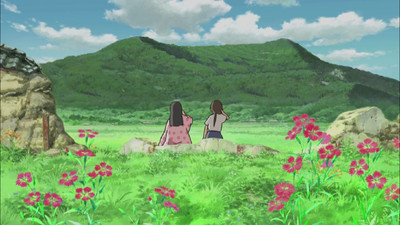
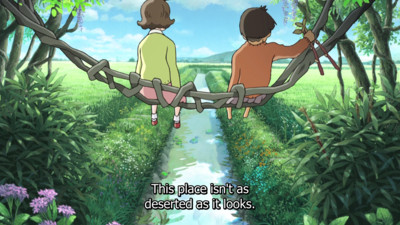
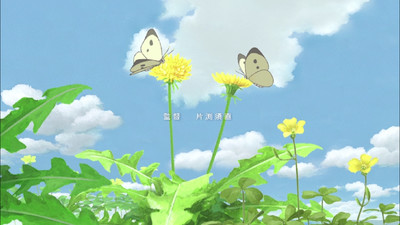
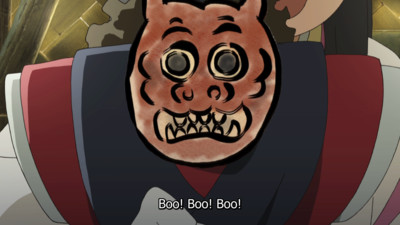
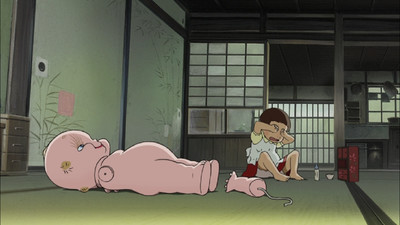
discuss this in the forum (8 posts) |
this article has been modified since it was originally posted; see change history